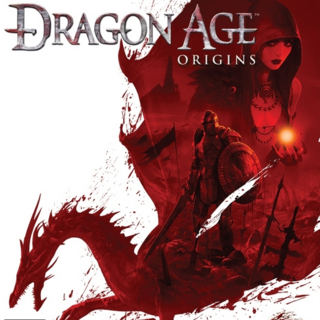Bioware redeems itself to PC gamers with their best RPG since the Infinity Engine era.
I'm of a certain cranky generation who believe Bioware lost its "magic touch" long ago, after the Golden Age of Infinity-Engine-powered classics like Baldur's Gate II and Planescape: Torment peetered out and development shifted to console-optimized action-RPGs. The overblown marketing campaign for Dragon Age certainly didn't help matters, with a dozen different permutations of special editions and exclusive DLC quests and items sprinkled among varied retailers and online marketplaces. Not to mention the long development time and aging graphics engine possibly pointing to internal limbo as Bioware focused on big-sellers like Mass Effect and KOTOR. There's NO WAY this thing could be any good, I told myself. Even after all the positive reviews started pouring in last year, I still didn't believe them. "They're just being soft on Bioware because RPG standards have fallen," etc, etc.
Well, the joke's on me because Dragon Age: Origins is un-freaking-believeable. It's easily Bioware's best RPG since the Infinity Engine era and one of the best fantasy RPGs, period, since that time. Dragon Age is a game that will keep you up til the early a.m. hours with satisfying tactical combat, wonderfully drawn characters and dialogue, and a refreshing epic tale that puts you and your friends in the middle of an immersive, believable fantasy world. Bioware learned its lesson from Mass Effect by clearly separating background lore and story progression. If you want to sink your teeth into gobs of history, simply read codex entries in your journal as pop-ups indicate they're updated, instead of getting trapped in overwrought conversations with lore-happy NPCs that never end. Those epic voice-recorded tales are still in the game, of course, as you have the option to talk up party members and a few NPCs for more background -- particularly the bard Leliana, who (logically) offers up the most in-depth stories on major figures in the game's lore. Leveling is largely a joy, with meaningful upgrades and skills unlocked as you play. It's not quite as addicting as something like World of Warcraft or Civilization, but the leveling mechanic certainly scratches that min-maxer itch with multiple worthwhile specialization routes available for each class. Experimenting with party combinations is also a blast, as each character is well-developed with a unique perspective for banter. There's really no "throw-away" characters, so getting enough quality time with all your party members is tough in one play-through, adding another reason to replay the game besides the numerous mutually exclusive plot decisions you must make.
Dragon Age isn't perfect. In fact, it's quite a bit less perfect than its spiritual predecessor, Baldur's Gate II. There's a few too many nods and winks to Tolkien, Peter Jackson and World of Warcraft. There's no ability queuing in combat. Progressing party member's personal quests can feel a little laborious at times. Pacing takes a dive in two overly drawn-out sections of the game in the now notorious Fade and Deep Roads chapters. Gear itemization gets a *little* cluttered as one entire line of armor (the noncommittal "Medium" line) doesn't have a true purpose for any class or build. Crafting is a little fussy with two skills of dubious value (trap-making and poisons) but no enchanting. (You have to use NPC merchants to handle all gem upgrades in your weapons instead of doing it yourself, on the fly.) Debuffs and crowd control spells are relatively unnecessary, at least at the default difficulty, which is a little surprising for a combat model that borrows so heavily from MMOs like World of Warcraft. It might also be a disappointment (or relief) from fans of Infinity Engine games that enemy mages are a little underpowered -- you don't really need to worry about dispelling or counterspelling like some of the gnarly lich encounters in the Baldur's Gate series. And my last complaint -- the great early challenge that requires you to tactically plan every major battle quickly turns into auto-pilot slaughter in the final third of the game as your party gains enough gear and abilities to steamroll nearly any encounter.
But even those criticisms don't ever really make the game un-fun to play. This is a meaty, in-depth adventure that might be a little daunting to commit to at first, but once you let Dragon Age get its hooks in you, you're in for a long rollercoaster ride. Post-release DLC support is also generally quite good (with the exception of the ill-conceived Darkspawn Chronicles), either integrated directly into the main campaign (The Stone Prisoner, Warden's Keep, Return to Ostagar) or directly related to characters and events in the main storyline in separate modules (Leliana's Song, Golems of Amgarrak, Witch Hunt).

